Fishing group a lifeline for men's mental health
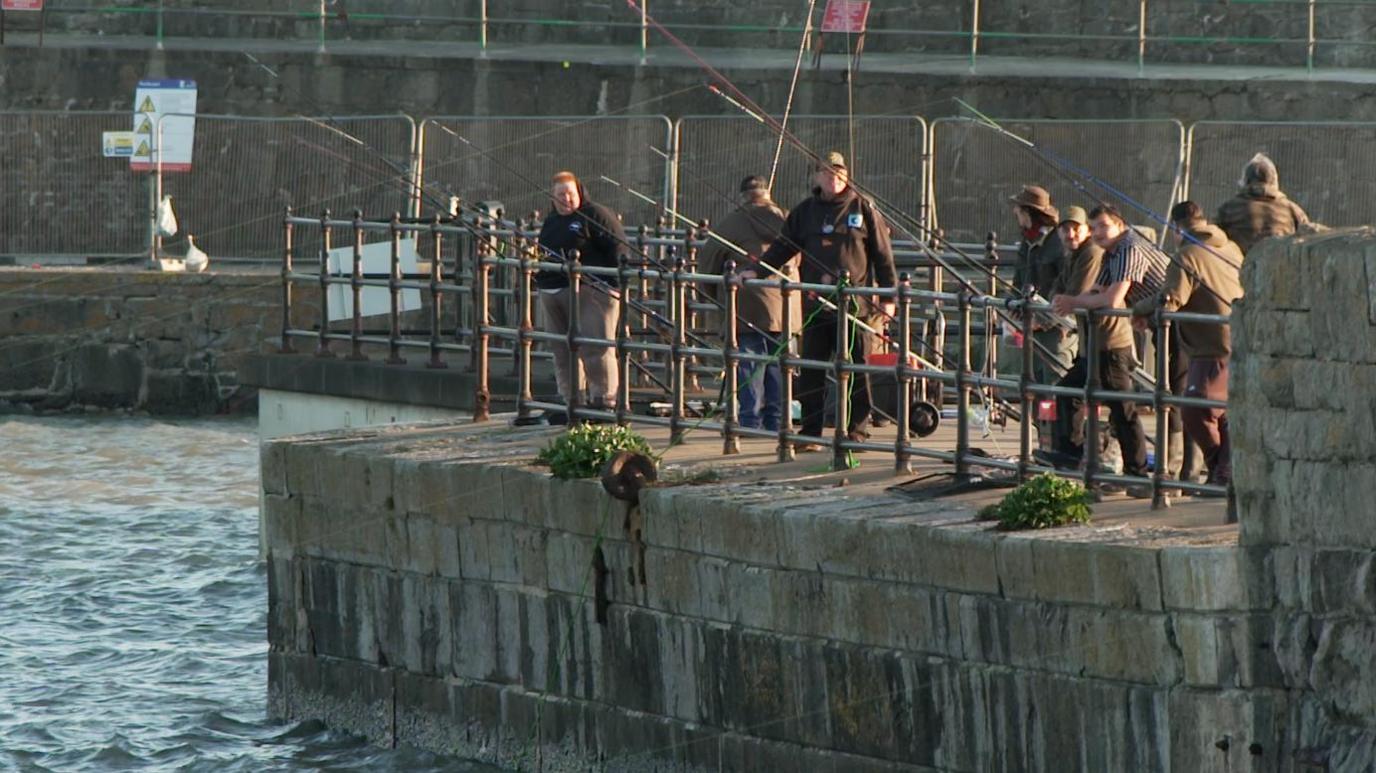
Reel Minds is a fishing group that aims to get people together to improve mental health and wellbeing
- Published
Brian Morgan was 73 when his life was completely changed by a local fishing group.
Living on his own in a flat in Pontypridd, Rhondda Cynon Taf, he had become increasingly isolated and lonely.
“I didn’t meet anybody. I hadn’t even met my neighbours,” he said.
Then last summer he happened across a Facebook post about a fishing group for people suffering with their mental health.
“I used to fish many years ago as a boy in the local river and I enjoyed it then,” said Brian. “We never ended up catching very much but it was great.’’
The group he had come across, Reel Minds, is one of a growing number of social prescribing organisations which aim to improve mental health and wellbeing through community activities.
For Brian, who now lives in a care home, it was a lifeline.
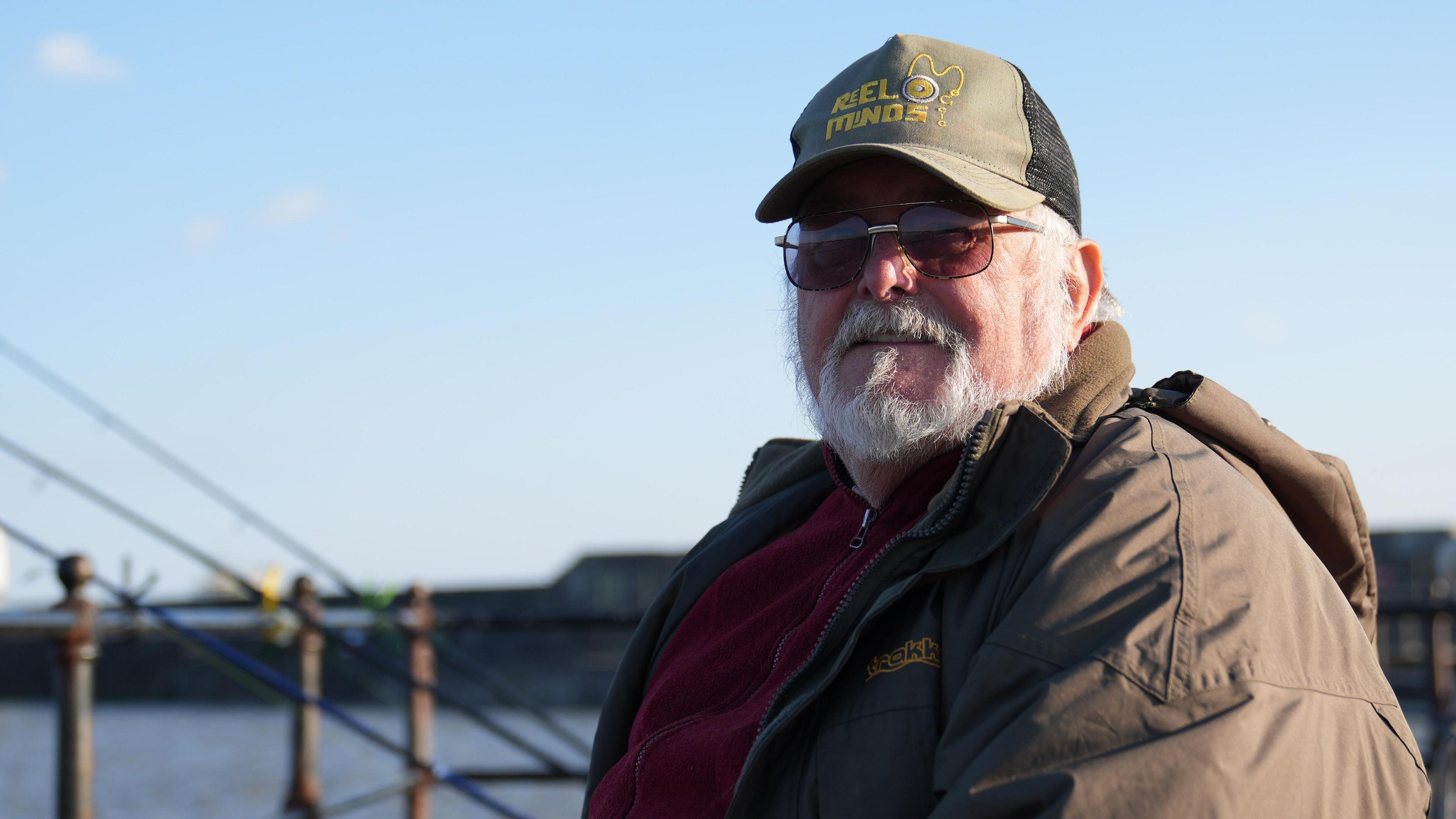
Brian says the group has "done him a world of good"
“I actually get to talk to people,” added Brian. “It is doing me a world of good. It’s not even the fishing really. It’s the guys.”
Dave Williams, the founder of Reel Minds, thinks that the group provides the right environment for men to open up.
“There is a saying that men don’t talk face-to-face, they talk shoulder-to-shoulder.
“If I asked these guys, do you want to come out and have a chat about your mental health, they’d say no. But fishing, that’s a different story.
“We end up having a chat and we talk about how we’re feeling. It definitely helps.”
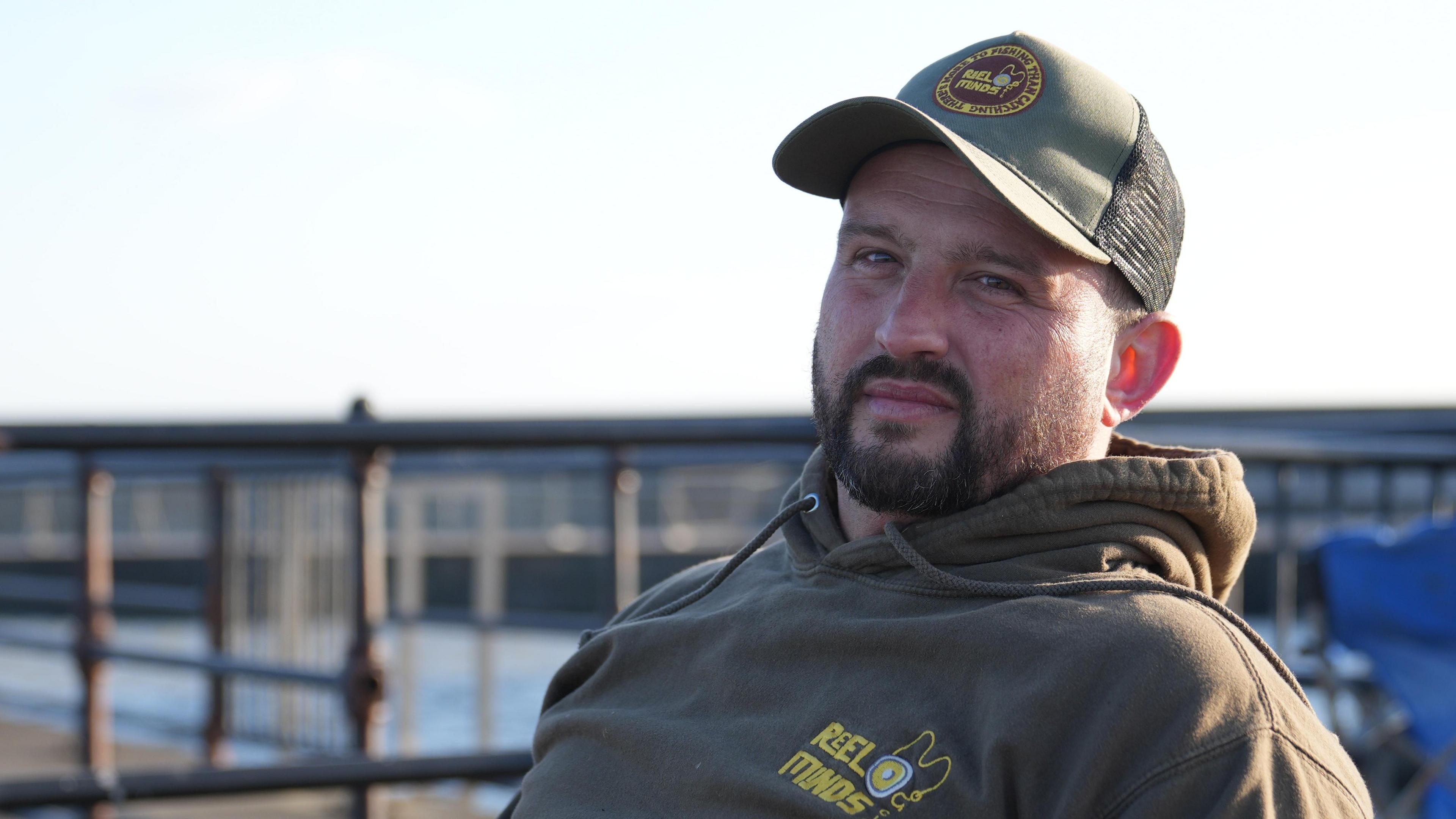
Reel Minds, founded by Dave Williams, now has about 70 members
Loneliness, physical health, mental wellbeing and isolation are some of the reasons why people have signed up.
The group now has more than 70 members.
A study by the University of South Wales suggests that social prescribing groups like Reel Minds could reduce attendance at GP surgeries by 15% to 28% by people getting community support to improve well-being.
Robert Murphy, from Rhondda, who is autistic, said: “Before I started fishing, I was very lonely and depressed. I got bullied a lot”.
“Because of my difficulties, being ousted wherever I went, and not fitting in anywhere, I lived inside the house and didn’t do anything. I lived on my PC.’’
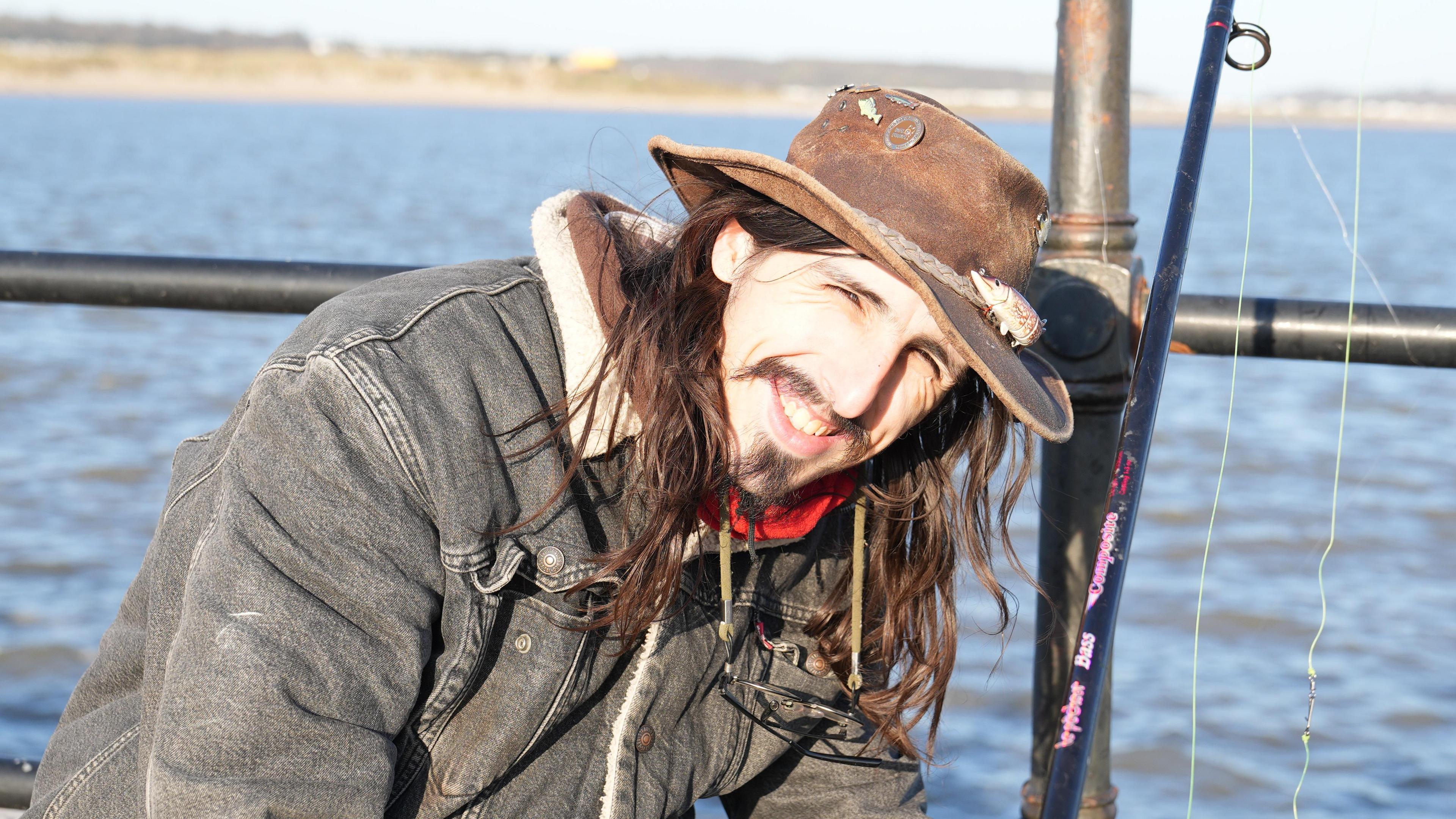
Robert Murphy said since attending he's become "more confident, more outgoing and I’ve become a lot more social"
It wasn’t until the pandemic lockdown in 2020 that he decided he needed to make some changes.
“I didn’t realise how miserable I was until then,’’ he said. “I told myself, when this is over, I am going to spend my life outdoors.’’
“But I had a bumpy start. Being autistic, you don’t have that social ability or stability to travel anywhere and I had no money.’’
Dave saw Robert posting about fishing online and, despite some anxiety about meeting up with strangers, reached out to see if he would like to join them on an excursion.
“So much of it has been life changing. Before this I had no friends, none whatsoever, no one. I now have more friends than I ever thought imaginable to have as a person,” he said.
“My life has been flipped upside down. I’ve found myself becoming more confident, more outgoing and I’ve become a lot more social.
“I’ve gone from being depressed, lonely and struggling to now I can cope.”
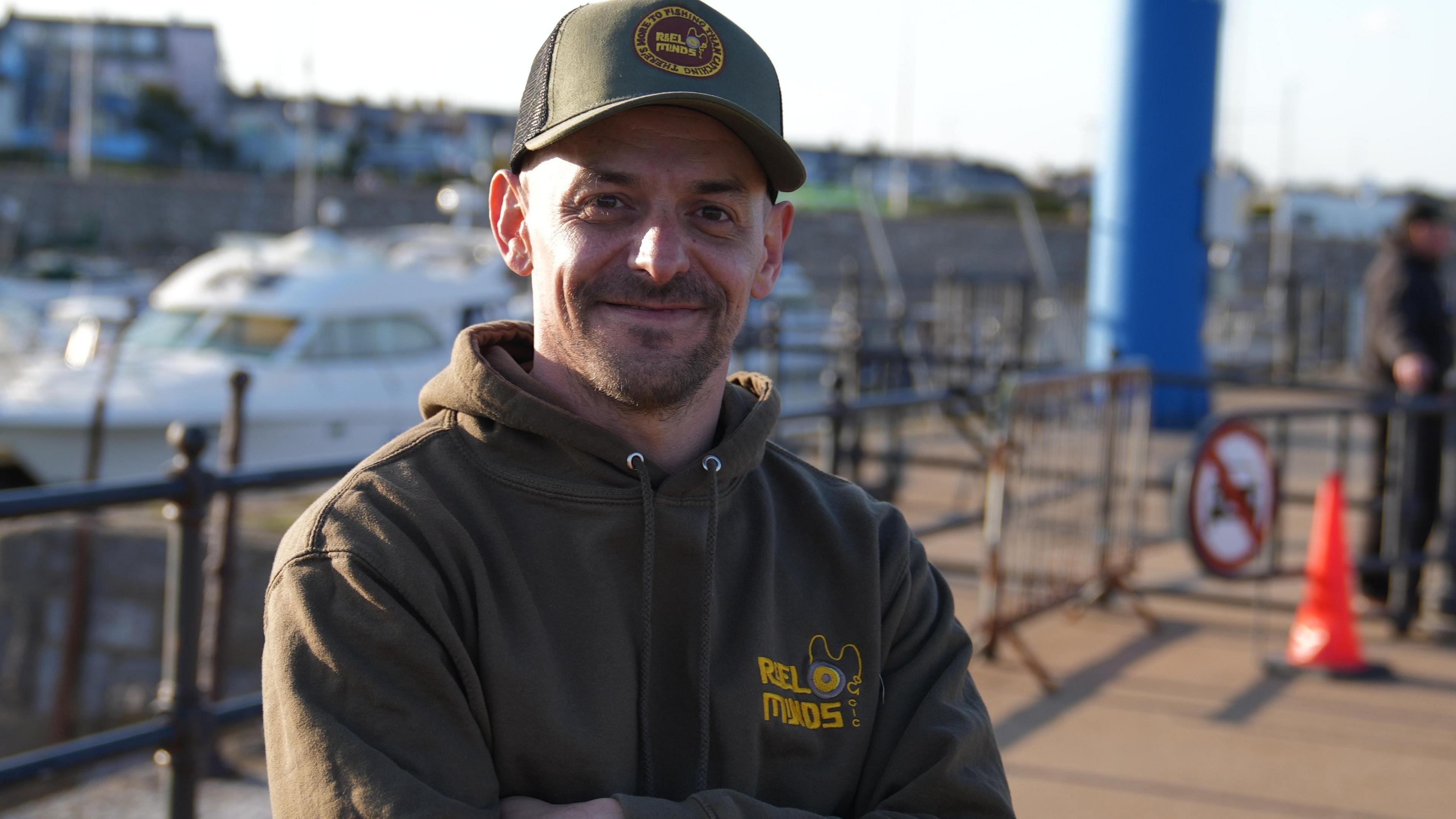
Volunteer James Powderhill said the group has been there for him as much as he's been there for them
James Powderhill, one of the volunteers who attends the sessions, said the group has been there for him as much as he is for them.
‘’It works both ways. It’s not just us, it’s actually them giving back as well,” he said.
‘’We all know men don’t like to talk, none of us do, but if you put two men down by the sea for eight hours, they’re going to talk. The floodgates open and it’s just brilliant.’’
For more on this story watch Wales Live on BBC One Wales at 22.35 BST on Wednesday
If you are affected by any of the issues in this article you can find details of organisations that can help via the BBC Action Line.